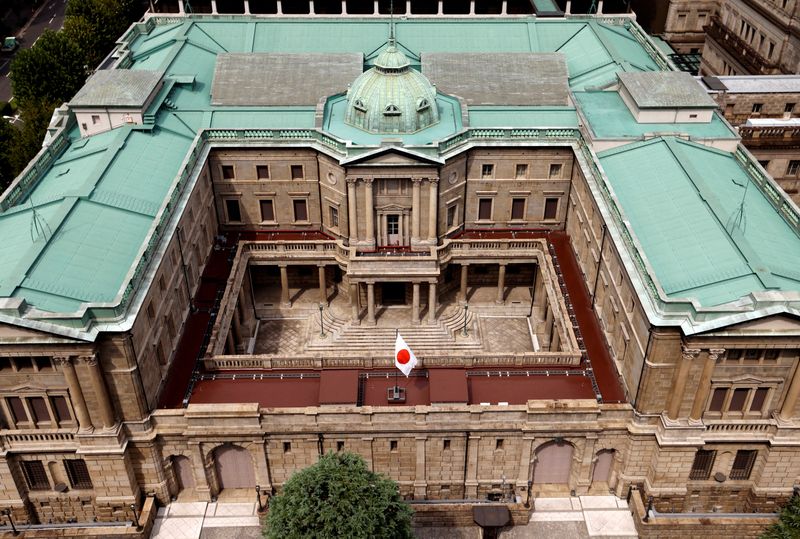By Leika Kihara and Yoshifumi Takemoto
TOKYO (Reuters) - The Bank of Japan may end its negative interest rate policy as early as January, and keep raising short-term borrowing costs if the economy can weather risks from overseas uncertainties, said former central bank executive Eiji Maeda.
The BOJ last month revised up its price estimates to project inflation to hit 1.9% in both fiscal 2024 and 2025, as measured by an index that strips away the effects of volatile fresh food and fuel costs.
The "surprisingly big" upgrade in the projections means inflation is already on course to sustainably hit the BOJ's 2% target, said Maeda, who is in close contact with policymakers.
The central bank could revise up its price forecasts again in January, which would allow policymakers to justify pulling short-term interest rates out of negative territory, he said.
"There's a chance the BOJ could end negative rates as early as January next year, if it judges that inflationary pressure is heightening," Maeda told Reuters in an interview on Wednesday.
"The BOJ could also end yield curve control. In doing so, it may put in place a guidance pledging to buy government bonds nimbly to counter any spike in long-term rates," he added.
As part of efforts to reflate growth, the BOJ sets a 0% target for the 10-year bond yield under yield curve control (YCC). It also applies a charge to a pool of excess reserves to guide short-term rates at -0.1% under its negative-rate policy.
The BOJ has pledged to keep both policies in place until sustained achievement of its 2% price target comes into sight.
If the BOJ decides to end negative rates, that would mean Japan will see inflation stabilise near 2%, and require raising short-term borrowing costs to levels seen as neither stimulating nor cooling the economy, Maeda said.
Such neutral interest rates, estimated by the level of inflation expectations and the economy's output gap, will most likely stand somewhere near 2%, Maeda said.
"After pushing short-term rates to zero from negative territory, the BOJ could raise interest rates gradually in a pace of once every few months with a close eye on economic and price developments," he said. "Given uncertainty over the overseas economic outlook, the BOJ will basically tread slowly and carefully, even if it were to keep raising short-term rates."
Before adopting negative rates and YCC in 2016, the BOJ was pushing down long-term rates solely with a huge asset-buying programme called "quantitative and qualitative easing" (QQE).

"After ending negative rates, the BOJ's policy would look quite similar to when it just had QQE," Maeda said.
The head of think tank Chibagin Research Institute, Maeda oversaw the BOJ's monetary policy drafting as its executive director until May 2020.